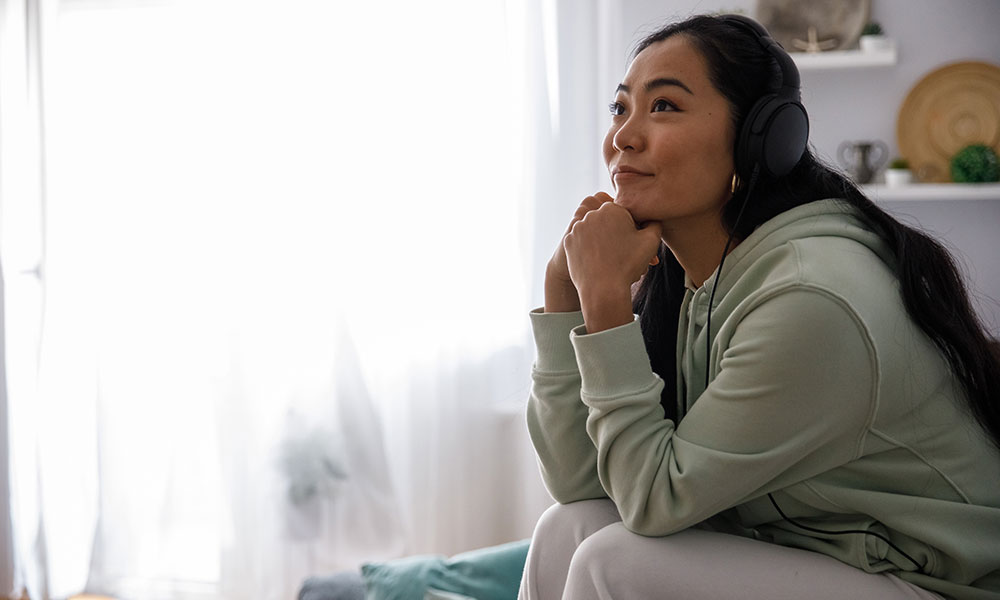
Research from UBCO says young women can feel better about their body image after a mindfulness session. However, body dissatisfaction returns as soon as they see images of “idealized” thin women.
A team of psychology researchers at UBC Okanagan has determined women who participate in one 10-minute intervention can come away feeling better about themselves and their perceived body image.
Associate Professor Dr. Maya Libben and her former honours undergraduate student Erin Fraser are researching the trend of micro-interventions. Just a quick 10-minute session with a soothing, previously recorded voice seems to make a significant difference when it comes to body satisfaction.
“In our lab we do lots of research around body image, self-assessments and interventions to discuss the effects of body dissatisfaction,” Dr. Libben explains. “We are also interested in micro-interventions. What can be accomplished from a quick gratitude meditation?”
Dr. Libben, who teaches psychology in the Irving K. Barber Faculty of Arts and Social Sciences, says the issue of body dissatisfaction, especially in young teens and women, is chronic and concerning. More than 50 per cent say they are dissatisfied with their weight, shape and size. This can lead to adverse physical and mental health outcomes, including low self-esteem, depression, stress, obesity and social anxiety. Body dissatisfaction can also contribute to the development of eating disorders, including anorexia nervosa, bulimia and binge eating.
Her team has done previous research, including a large-scale eight-week gratitude project, with school girls aged between 12 and 14. And while the longer programs were successful, Dr. Libben was intrigued by the idea of trying a one-time, 10-minute intervention.
For this particular study, 175 female undergraduate students, aged between 18 and 24, listened to three different sessions, recorded by someone with a soothing voice. One recording was about mindfulness, one about gratitude and one was a reading from a history textbook.
After each 10-minute session, participants were asked how they felt.
“What’s interesting is that body dissatisfaction decreased in all three conditions,” Dr. Libben adds. “We were expecting this for meditations but not for the history reading. What we realized is it is simply taking a 10-minute break and listening to something nice and calming can help body image. After each pep talk our study participants felt better about themselves.”
However, Dr. Libben notes things quickly changed.
Study participants were shown one of two sets of images—a set of neutral photos depicting inanimate objects, such as a car, or images of a perceived ideal woman, a typical thin body image.
“The feeling of body dissatisfaction shot right up again as soon as they saw images of thin women,” she says. “While we’ve learned we can bring down the feeling of dissatisfaction with moments of gratitude, it’s not enough to buffer you. This is troubling, especially in today’s society that is full of photoshopped bodies on social media.”
Her study, published in Body Image, confirms media exposure to “perceived perfect” images corresponds with women’s generalized dissatisfaction with their bodies, increased investment in appearance and the increased endorsement of disordered eating behaviours.
“Research has demonstrated a clear link between exposure to idealized imagery and body image disturbances,” Dr. Libben adds. “And even positive micro-interventions are not enough to fully buffer the negative impact exposure to thin-ideal images can have on young women.”